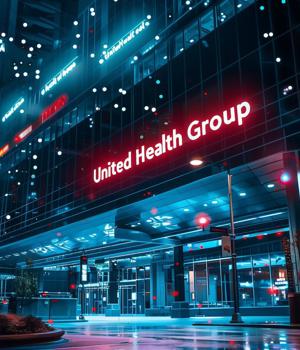Security News > 2024 > June > Change Healthcare lists the medical data stolen in ransomware attack

UnitedHealth has confirmed for the first time what types of medical and patient data were stolen in the massive Change Healthcare ransomware attack, stating that data breach notifications will be mailed in July.
Change Healthcare says that the exposed data may be different for each impacted individual and that patients' complete medical histories have not been seen in the stolen data.
"CHC is posting this substitute notice to provide customers and individuals with information about the criminal cyberattack on CHC systems and to share resources available to people who believe their personal data potentially being impacted," reads the Change Healthcare data breach notification.
The data breach notifications are for a February ransomware attack on UnitedHealth subsidiary Change Healthcare when attackers stole 6 TB of data from the company.
They then began leaking some of the stolen data on the RansomHub data leak site, demanding an additional payment for the data not to be released.
Change Healthcare hacked using stolen Citrix account with no MFA. UnitedHealth confirms it paid ransomware gang to stop data leak.
News URL
Related news
- Ransomware gangs exploit Paragon Partition Manager bug in BYOVD attacks (source)
- Hackers Exploit Paragon Partition Manager Driver Vulnerability in Ransomware Attacks (source)
- Hunters International ransomware claims attack on Tata Technologies (source)
- Toronto Zoo shares update on last year's ransomware attack (source)
- Ransomware gang creates tool to automate VPN brute-force attacks (source)
- SANS Institute Warns of Novel Cloud-Native Ransomware Attacks (source)
- ⚡ THN Weekly Recap: Router Hacks, PyPI Attacks, New Ransomware Decryptor, and More (source)
- BlackLock ransomware claims nearly 50 attacks in two months (source)
- TechRepublic EXCLUSIVE: New Ransomware Attacks are Getting More Personal as Hackers ‘Apply Psychological Pressure” (source)
- For healthcare orgs, DR means making sure docs can save lives during ransomware infections (source)